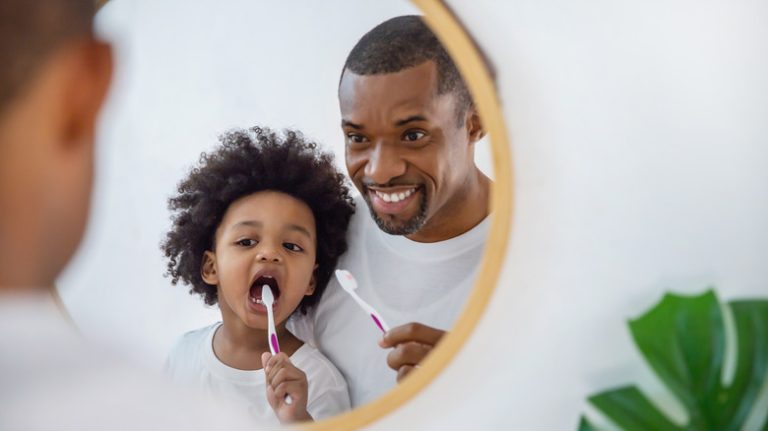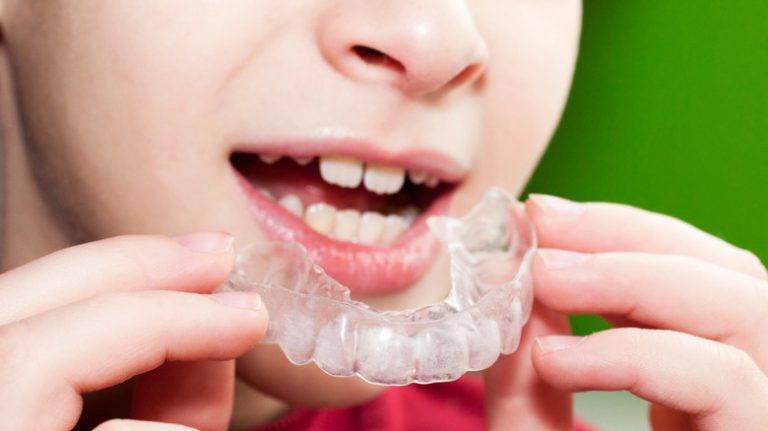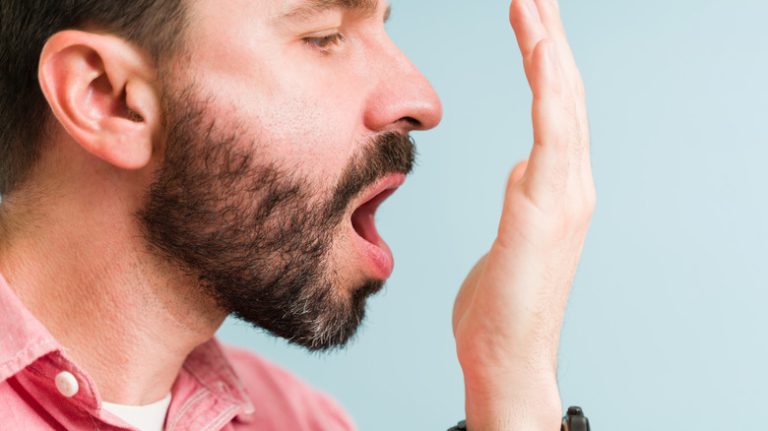Twice a year, you leave your dentist’s office with freshly cleaned teeth. During your visit, the dentist gives your teeth and gums a detailed inspection. This will help them catch any early signs of potential oral health issues. Additionally, you may be questioned about your dental hygiene routine; lifestyle habits; or diet, such as whether you regularly consume enamel-damaging beverages like soda or coffee.
During the cleaning itself, a dental hygienist will scrape away any visible plaque buildup with a metal device called a “scaler” before brushing your teeth using an electric toothbrush (per Healthline). Much like you might exfoliate your skin with a beaded facial scrub, your specialist will use flavored toothpaste with a grainy texture to further buff your teeth. You’ll then receive a thorough flossing before a fluoride substance is applied directly onto the teeth. Depending on what type of fluoride treatment you receive, you may be able to grab lunch immediately following your appointment. In other cases, patients may be advised to hold off on eating for about a half hour afterward (per Riverside Dental Care). Once you’re in the clear, however, which food items should you reach for and which ones should you pass on?
Stick with these foods after your dentist appointment
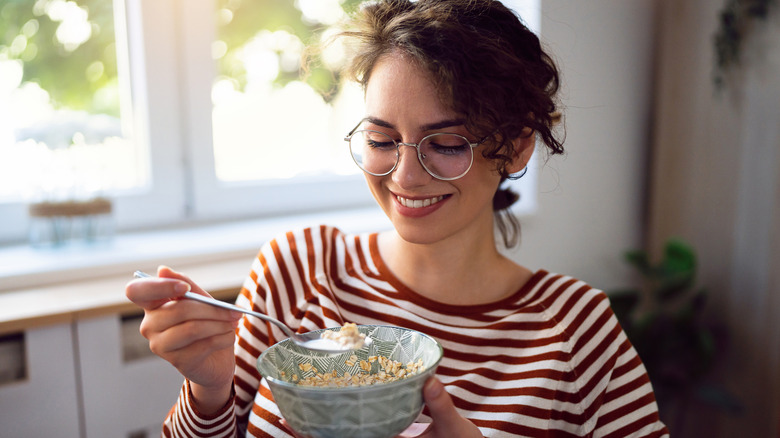
Your teeth may feel a little sensitive following a dentist appointment. For a few hours afterward, it’s best to stick with foods that will be gentle on the mouth. Such examples include hard-boiled eggs, soup, yogurt, bananas, applesauce, or mashed potatoes (per Riverside Dental Care). Experts at West Coast Dental & Orthodontics further expand on this list to add oatmeal, cottage cheese, scrambled eggs, or your favorite smoothie. Ultimately, you want to go for foods that are soft, mild in flavor, and aren’t too hot or cold in temperature.
Oppositely, you’ll want to avoid eating anything that’s too tough, crunchy, spicy, or extreme in temperature. Hot peppers, raw vegetables, chips, nuts, and popcorn are out. Similarly, refrain from eating anything too chewy or cold, like taffy or ice cream. You’ll also want to reduce acid exposure to your teeth. Therefore, pickles, citrus fruits, and tomatoes are best avoided. The same goes for acidic beverages, such as soda, coffee, and wine. After a dentist appointment, water is your best friend.
Try these other dentist appointment aftercare tips, too
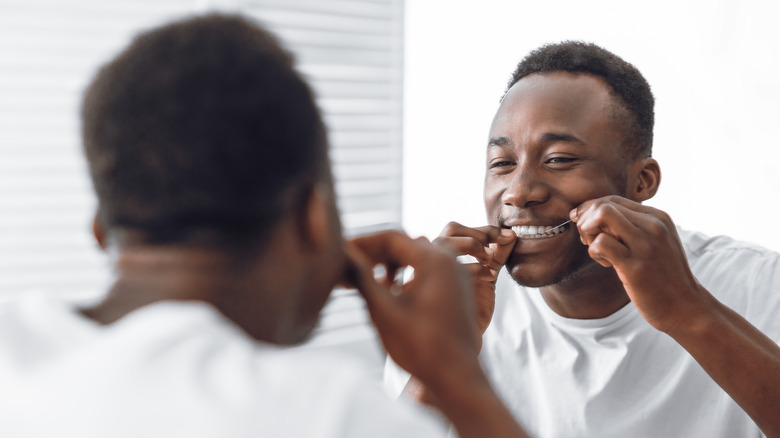
While visiting your dentist may not exactly be your favorite activity, it’s vitally important to your health. Regular dental cleanings can protect against tooth decay, gum disease, tooth loss, and oral cancer (per Monarch Dental and Orthodontics). Teeth cleanings can also help reduce visible staining and bad breath. By keeping up with biannual dentist appointments, you can minimize the risk of more costly or severe oral health issues down the line.
In addition to following your dentist’s instructions about eating post-visit, here are some additional aftercare tips to keep in mind. Wait until the day after your visit to resume flossing as normal, but keep up with brushing your teeth twice daily — preferably with an American Dental Association-approved electric toothbrush. Just remember not to be too heavy-handed while brushing as your teeth may be sensitive after a cleaning. Before doing so, however, use a mouth rinse with calcium as this will help preserve the fluoride on your teeth.

